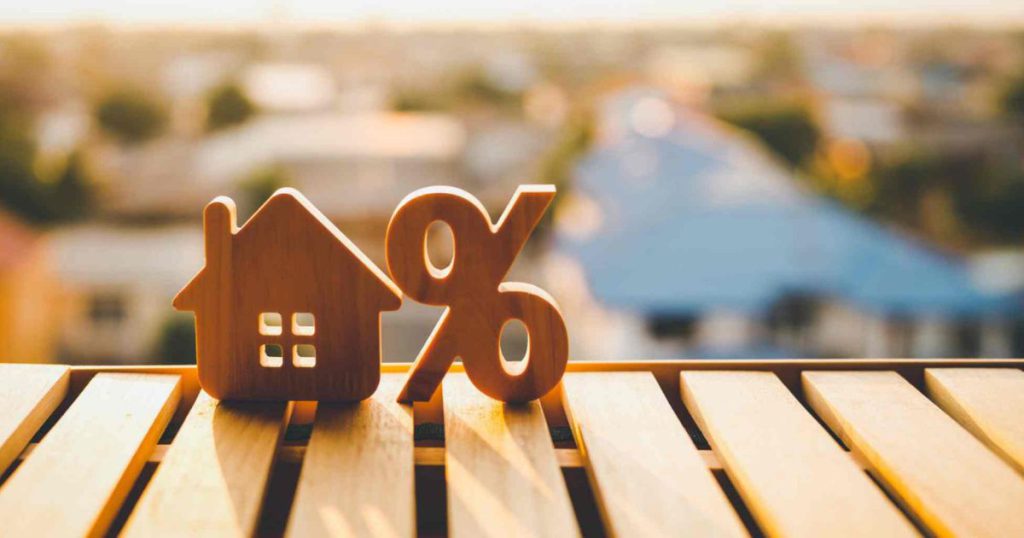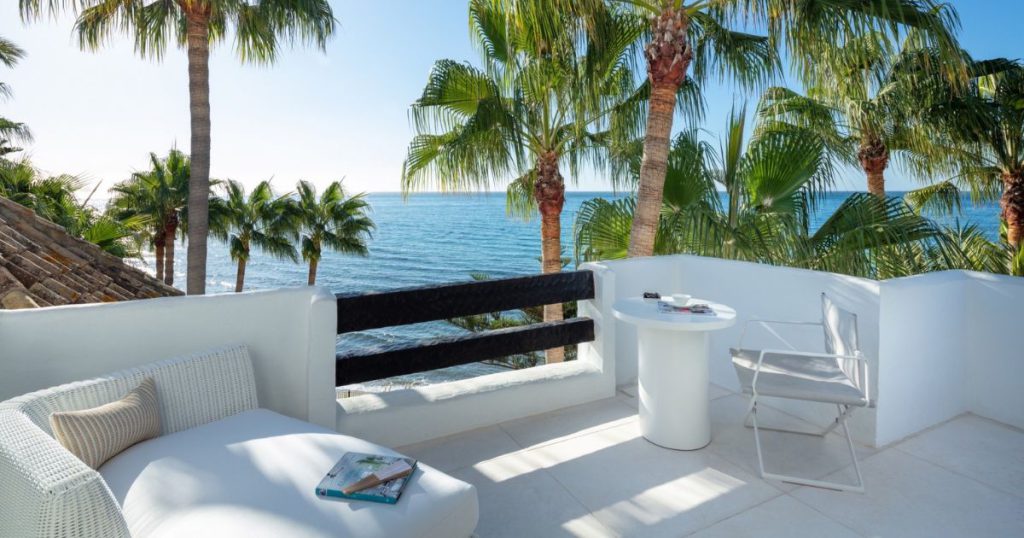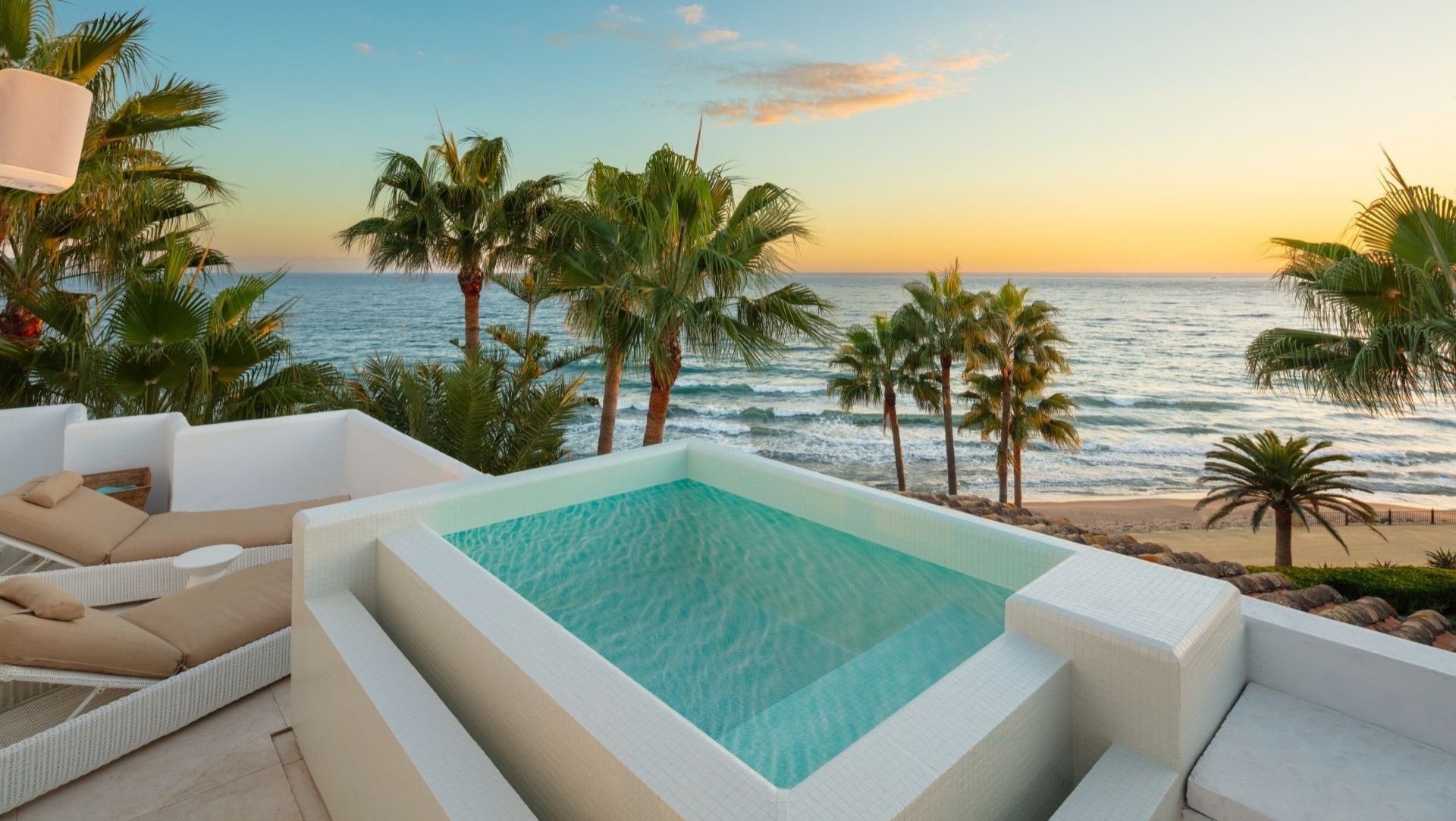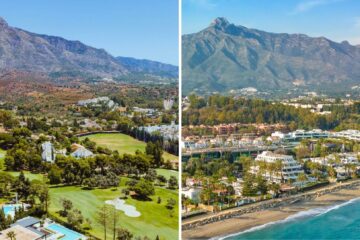So you want to buy a house in Spain from USA? You’re in the right place. This comprehensive guide from Niche Estates covers everything from getting your Foreigner’s Identification Number (NIE) to the notary signing, taxes and ongoing obligations so you can buy property in Spain with confidence and compliance.
At Niche Estates we help international buyers navigate the Spanish property market in Marbella and Costa del Sol. We coordinate real estate agents, property lawyers, mortgages and due diligence to make the property purchase process smooth and secure.
Quick Answer: How to Buy a House in Spain from USA (10-Step Checklist)

Use this featured-snippet-friendly checklist to see the whole process at a glance:
- Get a passport + get a Spanish Foreigner’s Identification Number (NIE).
- Open a Spanish bank account and have funds for the down payment and purchase price.
- Engage a Spanish property lawyer in Marbella for legal compliance and due diligence.
- Shortlist areas on the Costa del Sol; compare resale vs new-builds.
- Make an offer; sign a reservation contract; pay a small reservation fee.
- Sign a deposit contract (arras); typically 10% of the property’s purchase price.
- Complete due diligence: Nota Simple, planning checks, debts, community bylaws.
- If financing, get a non-resident mortgage (banks apply their own risk criteria).
- Sign the deed at the notary; pay property transfer tax or value added tax, plus fees.
- Register the deed in the Land Registry; set up utilities; plan ongoing tax obligations.
The Spanish Property Market: What US Buyers Should Know

The Spanish property market is one of Europe’s most popular for international buyers and the Costa del Sol—and Marbella in particular—offers year round sun, international schools and strong rental income potential. Compared to many European countries and major US coastal cities, property prices in Andalucía are still very competitive for the lifestyle and amenities, especially in established areas like the Golden Mile, Nueva Andalucía and Sierra Blanca.
- Transaction volumes and prices in prime Marbella have been stable, driven by international buyers and limited supply in top areas.
- New-build supply is restricted by planning timelines which supports pricing for existing properties and quality off-plan projects.
- For investment clients, short term rental demand is strong in tourist areas but local regulations and licensing are key.
Data sources:
- INE (Spanish Statistical Office) – Housing Price Index
- Colegio de Registradores – Quarterly property transaction reports
- Junta de Andalucía – Regional tax decrees and ITP/AJD updates
Step by Step: The Property Purchase Process for Americans
Here’s the property purchase process broken down with the key legal procedures and documents you’ll need as a non resident.
1) Get Your NIE (Foreigner’s Identification Number)

- Also called the foreigner’s identity number or tax identification number.
- Required for property ownership, taxes and most legal aspects of the purchase process.
- Apply via a Spanish Consulate in the USA or in Spain. Your Spanish lawyer can assist.
2) Open a Spanish Bank Account
- A Spanish bank account is essential for the deposit, notary payments, utilities and ongoing tax obligations.
- Banks will request passport, NIE (or application), proof of address and proof of funds.
3) Engage a Property Lawyer (Abogado)

- Hire an independent real estate lawyer, not affiliated with the seller, to conduct due diligence, verify legal status and coordinate the land registry checks and legal compliance.
- Niche Estates can introduce vetted Spanish lawyers and real estate lawyers with deep Marbella experience.
4) Shortlist Areas and Property Type
- Costa del Sol highlights: Marbella, Benahavís, Estepona and Mijas.
- Resale vs new-builds. New-builds carry VAT (value added tax) and stamp duty; resales incur property transfer tax.
5) Reservation Contract

- Ensure the reservation includes conditionality for mortgage approval or due diligence outcomes.
- Small fee (often €6,000-€20,000) to reserve the property while legal checks proceed.
6) Deposit Contract (Arras)
- Typically 10% of the property’s purchase price.
- Sets timelines and penalties for withdrawal. Ensure your lawyer reviews all legal requirements.
7) Due Diligence and Legal Procedures
- Lawyer orders a Nota Simple, checks planning/zoning, verifies no debts, reviews community bylaws, confirms habitability/occupancy certificates.
- Technical survey recommended for villas or older buildings.
8) Financing (If Needed)

- Non-resident mortgages usually offer 60–70% LTV of the lower of valuation or purchase price.
- Spanish banks use their own risk criteria and may require higher down payment and documented income.
9) Notary Completion and Taxes

- Sign the public deed (Escritura) before a notary.
- Pay applicable taxes (ITP on resales or VAT + AJD on new-builds), plus notary fees and land registration fees.
10) Property Registration, Utilities, and Taxes

- Lawyer completes property registration with the Land Registry.
- Set up utilities, homeowner’s insurance, and prepare to pay local property tax (IBI), non resident income tax (IRNR), and any community fees.
Where to Buy in Marbella and the Costa del Sol

When buying in Spain as a foreigner, micro-location matters. Marbella’s sub-markets vary in pricing, legal aspects for tourist rentals, and community amenities.
- Prime Marbella: Golden Mile, Sierra Blanca, Puente Romano area. High property price levels, low supply, strong liquidity.
- Golf Valleys: Nueva Andalucía, Los Naranjos, La Quinta. Popular for villas and apartments with rental income potential.
- Beachside Estepona & New Golden Mile: Value relative to Marbella prime, increasing new-build options.
- Benahavís: Gated country clubs (La Zagaleta, El Madroñal), privacy, and large plots.
Resale properties may offer more space and established communities. New-builds offer modern energy efficiency and warranties. NICHE ESTATES matches lifestyle goals—primary home, second home, or property investment—with the best areas and property types.
Costs and Taxes: From Purchase Price to Ongoing Expenses

Taxes and fees are crucial to your purchase process. Below is a practical breakdown for Andalucía (the region for Marbella). Always check current rates before closing, as local laws can change.
Upfront Purchase Costs (Andalucía – Marbella)
| Cost Item | Resale Properties (ITP) | New-Build (VAT + AJD) |
|---|---|---|
| Main tax | Property Transfer Tax (ITP): 7% | Value Added Tax (VAT/IVA): 10% |
| Stamp duty (AJD) | N/A | ~1.2% (regional; confirm current) |
| Notary fees | ~€600–€1,500 | ~€600–€1,500 |
| Land Registry (land registration) | ~€400–€1,000 | ~€400–€1,000 |
| Legal fees (property lawyer) | ~1% + VAT | ~1% + VAT |
| Bank/mortgage costs (if financing) | 0–1% arrangement + valuation | 0–1% arrangement + valuation |
| Valuation (tasación) | ~€300–€800 | ~€300–€800 |
| Notary translation/sworn interpreter | ~€200–€600 (if needed) | ~€200–€600 |
| Agent fees | Paid by seller (typical in Spain) | Typically paid by developer |
Notes:
- ITP in Andalucía is currently a flat 7% on the property’s purchase price for most transactions.
- VAT (10%) applies to first transfer of new properties; AJD (stamp duty) varies by region; in Andalucía ~1.2% is common.
- Notary fees, land registry fees, and legal fees depend on the property value and document complexity.
- Buyer should budget 8–14% of purchase price for total acquisition costs depending on resale vs new-build and mortgage use.
Ongoing Tax Obligations for Non Residents
| Tax / Cost | Typical Range / Notes |
|---|---|
| Local property tax (IBI) | ~0.4%–1.3% of cadastral value (varies by municipality) |
| Community fees (HOA) | Highly variable (apartments with amenities cost more) |
| Garbage tax (Basura) | Local annual fee |
| Non-Resident Income Tax (IRNR) | If rented: 24% of gross rental income for non-EU; if not rented: imputed income tax based on cadastral value |
| Insurance (home + liability) | Recommended; often required by banks |
| Utilities | Electricity, water, internet |
When selling, capital gains tax for non-residents is typically 19%. For non-resident sellers, buyers must withhold 3% of the sale price as an advance payment of CGT. The Spain–USA tax treaty may allow US tax credits on foreign taxes paid; consult a cross-border tax advisor.
Authoritative references:
- Agencia Tributaria (Spanish Tax Agency) – IRNR, ITP/AJD, VAT/IVA
- Ayuntamiento de Marbella – IBI and local rates
- Ministerio de Hacienda – National tax framework
Financing and Mortgages for US Buyers

Spanish banks lend to non resident buyers with the following conditions:
- Loan-to-Value (LTV): 60–70% of the lower of valuation or purchase price.
- Term: Often up to 20–25 years for non-residents.
- Rates: Variable (Euribor + margin) and fixed-rate options exist; pricing depends on profile.
- Documentation: Income verification, US tax returns, asset statements, credit reports, plus NIE and Spanish bank account.
Important: Spanish banks apply their own risk criteria and may require a larger down payment, life/home insurance, and direct debit of repayments from a Spanish bank account.
Currency strategy: If your income is in USD but your mortgage and costs are in EUR, consider FX risk. Staggered transfers or specialist currency solutions can reduce volatility risk during the buying process.
NICHE ESTATES works with leading Spanish banks and brokers to secure pre-approvals swiftly for international buyers and to stress-test financial considerations before you sign a deposit contract.
Due Diligence and Legal Procedures: How We De-Risk Your Purchase

This is where a seasoned Spanish lawyer and experienced Spain buyer’s agent add real value. Legal compliance isn’t just paperwork; it’s your protection.
- Title and charges: Order the Nota Simple, check property ownership and any encumbrances.
- Planning and licenses: Verify building permits, occupancy license, and whether extensions match the Land Registry and Catastro.
- Community bylaws: Review use rules (e.g., short-term rentals), pet policies, façade restrictions, and shared-area liabilities.
- Debts and utilities: Confirm seller is up to date on IBI, community fees, utilities, and real estate tax bills.
- Reservation and deposit terms: Your lawyer will structure the reservation contract and deposit contract with clear contingencies and timelines.
- Notary and completion: The notary checks identities, legal status and both parties understand the deed; your lawyer ensures all legal aspects are captured.
- Property registration: After signing, your deed is registered at the Land Registry (Registro de la Propiedad).
NICHE ESTATES coordinates the process with your lawyer, notary and the seller’s side to ensure timing, documents and payments align.
New-Build vs Resale: Tax and Timing Differences

- New-build purchase: 10% VAT + AJD (1-1.5%) on the purchase price; staged payments during construction; bank guarantees for deposits.
- Resale properties: 7% property transfer tax (Andalucía); faster completions; more negotiable pricing depending on seller motivation and days on market.
Off-plan due diligence tips:
- Check bank guarantees on every payment.
- Research developer reputation, build schedule and escrow mechanisms.
- Verify license status and planning approvals before paying a reservation or deposit.
Common Legal Issues to Watch For (And How We Solve Them)
- Unregistered extensions or terraces not matching Land Registry.
- Outstanding community debts that pass with the property.
- Tourist rental restrictions in certain buildings or zones; each municipality in Spain and even each autonomous community can regulate differently.
- Coastal law setbacks and protected land.
- Licenses pending for new-builds delaying completion.
NICHE ESTATES and your Spanish lawyer apply strict due diligence, coordinate with town planning and obtain written confirmations to resolve or avoid legal issues before you’re committed.
Visual: Typical Cost Composition (Resale vs New-Build)
Resale (ITP)
- ITP: ██████████████
- Fees: ███
- Legal: ██
- Bank/Valuation: █
- Total Costs: ~8–9%
New-Build (VAT + AJD)
- VAT: █████████████████
- AJD: ██
- Fees: ███
- Legal: ██
- Bank/Valuation: █
- Total Costs: ~12–13%
(Bar lengths illustrative for comparison.)
Visas, Residency and Your Legal Status

Buying property in Spain from the USA does not require residency. However, depending on how you plan to use the property, consider:
- Schengen stays: As a US citizen, you can stay up to 90 days in any 180-day period without a visa.
- Non-Lucrative Visa: For longer stays without working in Spain.
Your legal status doesn’t change tax obligations on the property, but it can affect your time in-country and some administrative conveniences. NICHE ESTATES can connect you with immigration specialists for tailored guidance.
Frequently Asked Questions: Buying Property in Spain from USA

Can a US citizen buy a property in Spain?
Yes. Foreigners can own property in Spain. Just get an NIE (tax identification number) and follow the legal process.
Do I need a Spanish bank account?
A Spanish bank account makes payments, notary disbursements, utilities and taxes easier. Most banks will open accounts for non-residents with the right documentation.
What’s the difference between property transfer tax and VAT?
- Resales: You pay Property Transfer Tax (ITP). In Andalucía, it’s 7%.
- New-builds: You pay VAT (10%) + AJD, generally 1-1.5% in Andalucía.
What are the ongoing taxes as a non-resident?
- IBI (local property tax), community fees, garbage tax.
- Non Resident Income Tax (IRNR): 24% on gross rental income for non-EU residents; imputed income tax if you don’t rent out.
- On sale: Capital gains tax (19%) + 3% withholding at completion.
How long does the process take?
4-12 weeks for straightforward resales. Off-plan 12-24 months. Add time for mortgage approvals and legal procedures.
Do I need a survey?
Not mandatory, but recommended for villas and older buildings to avoid hidden costs and ensure legal compliance.
How Niche Estates Helps International Buyers

We’ve designed our service to make buying property in Spain as a US-based foreign buyer easier:
- Search and shortlisting: Access to the full Marbella and Costa del Sol market, including off-market properties.
- Buyer representation: Strategy, offer negotiation and vendor coordination across real estate agents.
- Legal coordination: Introductions to independent Spanish lawyers and real estate lawyers for due diligence.
- Mortgage support: Pre-approvals, rate comparisons and guidance on own risk criteria from lenders.
- Completion and registration: Notary scheduling, funds flow and property registration at the Land Registry.
- Post-purchase support: Utility setup, insurance, property management and rental licensing advice.
Contact NICHE ESTATES today to discuss your Marbella goals:
- Email: info@niche-estates.com
- Phone/WhatsApp:
- Visit: localhost/niche/
Get Started: Buying a House in Spain from USA

Now you know how to buy a house in Spain from USA—from the deposit contract to property registration and tax obligations—you can proceed with confidence. Whether lifestyle, rental income or long-term property investment, Marbella offers a great balance of climate, connectivity and community.
NICHE ESTATES is your on-the-ground partner for the whole process: search, due diligence, legal procedures, financing and close. Talk to our team to shortlist properties in Marbella and the Costa del Sol and we’ll turn your Spanish property purchase into a smooth experience.





